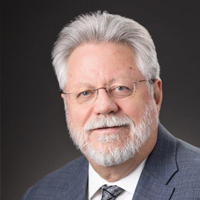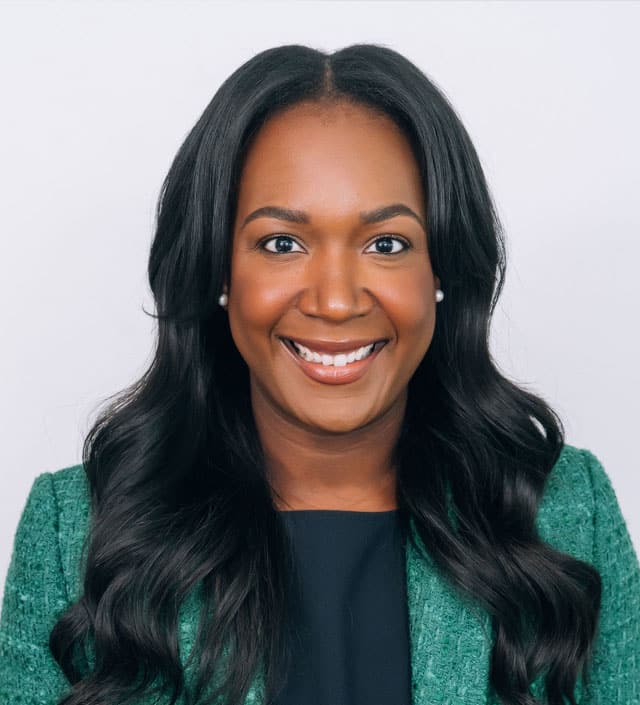
It’s the year 2035 and your highest-net-worth client died last week. Her husband died three years earlier. You’ve gotten to know their children really well, but they haven’t become clients yet. Now, you are sure they will. After all, you’ve followed the text-book advice of reaching out and getting to know the Generation Z children of your best clients.
The children of this particular couple have inherited “the mother lode” (pun intended). The son and daughter come into your office. You greet them compassionately and say how meaningful their mother’s memorial service was. Although some millions of dollars will go to charity, you know that the Gen Z children are going to inherit the bulk of the estate. You are stunned when they tell you that they will be transferring the money.
You tell them that their decision has taken you by surprise. You’d gotten to know them. They know how well you treated their parents and how much their parents enjoyed being your clients. They also know that you provided an excellent risk-adjusted rate of return and you only charged their parents 50 basis points. Why wouldn’t they become clients?
The Gen Zers quietly tell you that they’ve been with a robo-advisor for 10 years. You knew that, but you weren’t concerned about it because you planned to offer them more personal interaction than they got from the robo-advisor.
What You Failed to Consider
Let’s assume that robo began using artificial intelligence to construct portfolios in 2025 — the year your clients’ kids started working with their robo-advisor. AI picked a mix of active and passive funds, mostly ETFs, and rebalanced their accounts annually and automatically — swapping funds in and out as AI’s research indicated. AI also created and updated financial plans for these Gen Zers whose business you thought you’d earned. In the last five years, robo reduced its annual fee to 5 basis points.
One of the children was the power of attorney on their mother’s account. Their mother was a growth and income investor. The son and daughter, both cautious and on the back side of 40, have the same risk tolerance as their mother. They could easily see that robo outperformed mom’s account in the last three years — performance that was enhanced by the 45 basis-point difference in annual fees. The Gen Z children left your office and left you in a state of shock!
“Wealth advisory is a relationship business. Given the demographic and technological changes under way, it’s high time for advisors to invest or reinvest in relationship building skills.”
— Dr. Bob Seaberg
What AI Can’t Accomplish
As we near the beginning of the second quarter of the 21st century, we can anticipate that artificial intelligence will create a major disruption in the financial advisory industry and decrease demand for financial advisors. But it need not have a negative impact on your practice as in the imagined scenario above. Why not?
There is one thing that artificial intelligence can’t do: It can’t be human.
Several years ago, Dr. Bob Seaberg, who writes “Insights for the Influential Advisor,” wrote that, “Wealth advisory is a relationship business. Given the demographic and technological changes underway, it’s high time for advisors to invest or reinvest in relationship building skills.”
Now, more than ever, relationship-building skills should be at the very core of our financial advisory practices. It’s time to be very intentional about this. At the 2023 Raymond James Life Planning Symposium, Dr. Seaberg spoke about the importance of financial advisors functioning as coaches for their clients.
How Financial Advisors Can Compete Better
Just like stockbrokers from the days of yore, the financial advisors’ way of doing business is getting “long in the tooth” and may not be suited to compete with an AI dominated future. Financial advisors who transition into longevity life coaches will bring a powerful relationship-building skillset and practice management model to their clients and their children.
Longevity life coaching should be viewed as the third phase of development in financial services. [See the graphic.] First came the “stockbroker/insurance salesperson” phase, in which these individuals served as commission-based salespeople. The fee-based “financial advisor” phase that we’re now in — with advisors serving as portfolio managers and financial planners — emerged from the tired and worn transactional stockbroker/insurance salesperson paradigm.

A New Skillset
Longevity life coaches need to be able to demonstrate significantly enhanced listening skills and strive toward “awareness intelligence.” Dr. Dorothy Siminovitch, a master certified coach, has written, “The path toward coaching mastery and to self-mastery begins and ends with awareness. Awareness Intelligence informs the skill and the art of coaching, with the goal of developing resilient, agile and responsive leadership for our times.” (from her book “A Gestalt Coaching Primer: The Path Toward Awareness Intelligence.”)
In his book, “Developing Coaching Skills: A Concise Introduction,” Dr. Dietmar Sternad, an award-winning management professor who teaches coaching skills to graduate students, wrote that when you apply the principles of coaching, you will be able to:
- Ask better questions.
- Listen more carefully.
- Hold deeper conversations focused on the needs and goals of people you care for.
Many firms already have an important emphasis on longevity planning. What is missing is training advisors to be longevity life coaches for their clients.
A cohort of RJFS advisors are giving a lot of thought to what the longevity life coaching phase should entail and are in the process of developing a program that they plan to roll out in 2025. (This is an “ad hoc” group and is not, as of this writing, sponsored or endorsed by Raymond James.)
During the first half 2024, the cohort will meet monthly and discuss and internalize Sternad’s book to build a “coaching mindset” among members of the cohort. This will include learning how to conduct effective coaching conversations and how to develop essential coaching skills, trying out tested coaching tools, and learning about the best practices of experienced life coaches. The cohort will also begin to develop a Longevity Practice Management System including tools and techniques for advisors.
Later in in 2024, the cohort will turn more of its attention to Gestalt coaching to learn how to help advisors build awareness skills. The cohort will study and internalize the book “The Fertile Void: Gestalt Coaching at Work” by John Leary-Joyce.
There is an important distinction between executive or business coaching and life coaching. The Invention Cohort is interested in life coaching and plans to build a system for integrating longevity life coaching with longevity planning.
There are three paradigms for longevity planning. The first paradigm is focused primarily on caregiving and other needs of older adults. It primarily seeks to match needs with resources. The second paradigm is focused on health and wellness issues and attempts to advance healthy longevity through changes in health habits. The third paradigm is holistic longevity planning that begins with a vision of helping people become happy, healthy and purposeful centenarians and ends with helping clients establish up to fifty goals for flourishing in the Longevity Revolution.
Stay tuned!
Bradley C. Jenson, CFP, CIMA, AIF, CAP, is a financial advisor with Lake Superior Financial Services, Inc. in Duluth, Minn. Jenson is also the lead author of “Join the Longevity Revolution: A Guide for Financial Advisors and Their Clients.”







